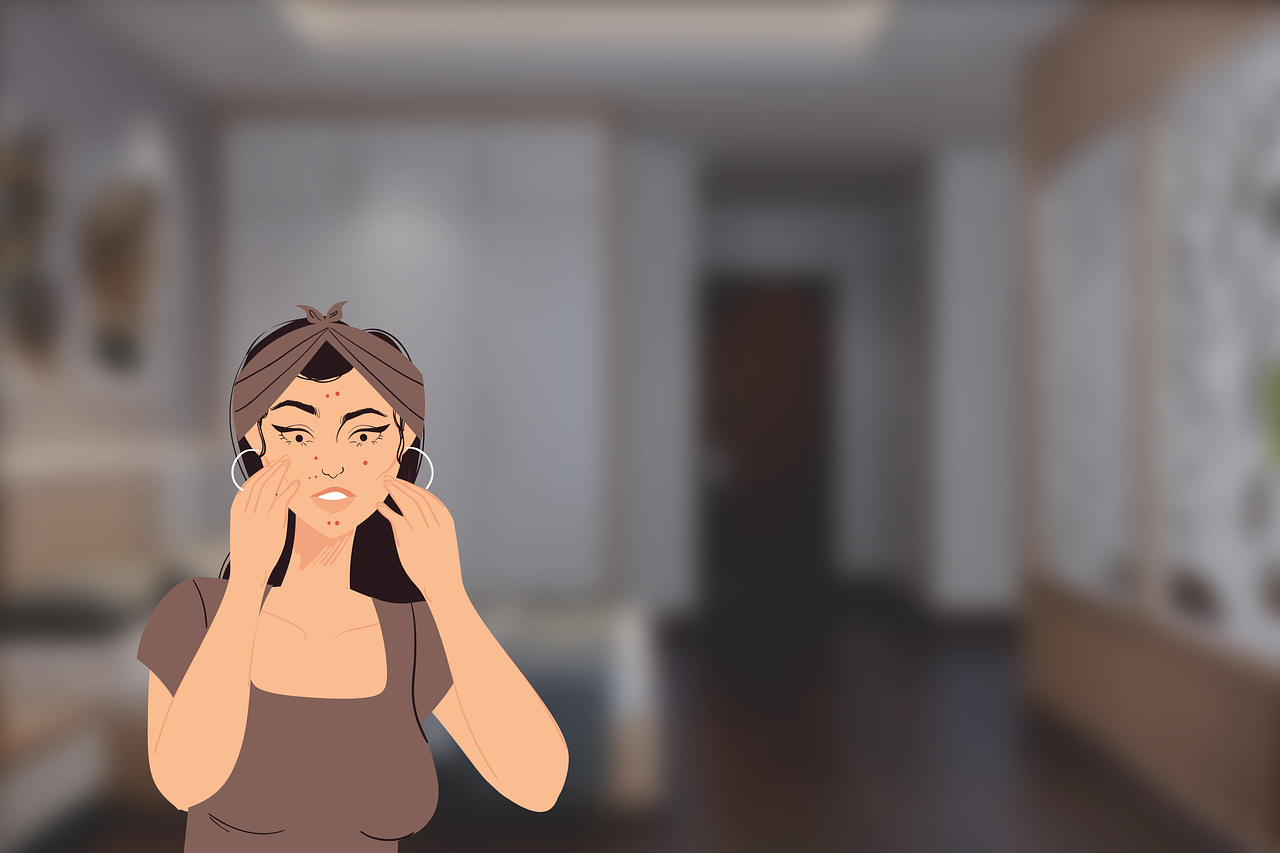What Causes Skin Damage?
We all have skin and want to take care of it. But what causes skin damage, and how can we prevent it? In this blog post, we'll discuss the factors that play a role in damaging your skin. From environmental factors to lifestyle choices, many things can cause harm to our largest organ. Let's dive in!
 Via Pixabay
Via PixabayEnvironmental Factors
One of the most significant contributors to skin damage is environmental factors. Too much sun exposure without adequate protection can lead to premature aging, dark spots, and even skin cancer. It's important to remember that UV rays from the sun don't just affect us during summer months—they can also pose a threat during winter months. This is why it's so important to wear sunscreen year-round and protect your skin from UV rays when you're outside for extended periods. Additionally, air pollution can be detrimental to your skin over time due to its high ozone levels and other pollutants that can irritate the delicate skin cells on your face and body. To help protect yourself from environmental toxins, try wearing a mask or scarf around your nose and mouth when you go outdoors in polluted areas.
Dietary Habits
What we eat plays a vital role in both our overall health as well as the health of our skin. For example, overeating sugar or processed foods can leave inflammation on our bodies' surface, leading to irritation and redness over time if not appropriately addressed through dietary changes or topical remedies such as serums or creams explicitly designed for irritated skin types. Additionally, eating too little fruit and vegetables (or simply not enough food) can deprive us of essential vitamins necessary for healthy cell regeneration within our bodies—including healthy cell regeneration on our faces! Therefore, eating a balanced diet is vital to maintaining good skincare habits.
Smoking
Smoking is one of the most dangerous and damaging habits when it comes to your skin and health. Smoking contributes to wrinkles and premature aging and increases the risk of developing serious diseases such as cancer, heart disease, stroke, and more. Smoking affects every organ, including your skin—the largest organ in our bodies. It reduces blood flow, leading to less oxygen being delivered to our cells, resulting in dullness or a grayish complexion. Additionally, smoking can cause dehydration, leading to dryness or flakiness on the surface of our skin over time. All these factors together can lead to an overall decrease in the health of our skin if we continue this habit for too long!
Alcohol
Alcohol can be a significant contributor to skin damage and health issues. While moderate alcohol consumption can have some benefits, excessive drinking has been linked to premature aging, wrinkles, redness, dryness or flakiness of the skin, enlarged pores, irritation, and puffiness around the eyes – all signs of poor overall health. Alcohol also causes dehydration which further contributes to these skin issues and other negative consequences such as headaches and fatigue. Additionally, excess alcohol intake is associated with an increased risk for certain cancers, including liver and colon cancer. Therefore it's essential to maintain a healthy balance when it comes to consuming alcoholic beverages to protect both your physical appearance and overall well-being!
Shaving And Waxing
Shaving and waxing can cause skin damage if not done correctly. For example, shaving too close to the skin can lead to irritation, razor bumps, and ingrown hairs, which can all be painful and unsightly. Additionally, shaving with a dull blade or using old razors can increase your risk of developing these issues and cuts and abrasions. Waxing can also be damaging if not done correctly—removing too much hair or using a wax that's too hot can lead to burns, pain, and skin damage. To avoid these issues, it's essential to use the proper tools when shaving or waxing and consider visiting an infinity laser spa for professional hair removal treatments instead.
Picking At Your Skin
We've all been guilty of picking at our skin from time to time, but this habit can be damaging and even lead to permanent scarring. Picking can disrupt the natural healing process of your skin and cause further irritation or infection. Additionally, resisting the urge to pick is essential so that you don't worsen any pre-existing skin conditions such as acne. If you suffer from chronic picking, you must talk to your dermatologist about ways to address the underlying issue and develop better habits for protecting your skin over time.
Ultraviolet Radiation
Ultraviolet (UV) radiation from the sun or tanning beds can cause premature aging of the skin as well as increase the risk of developing skin cancer. UV radiation can damage your skin's natural defenses and cause wrinkles, discoloration, and other signs of aging. Additionally, you must check your skin regularly for any changes and see a doctor if you notice any signs of skin cancer, such as moles that have changed in size or color or new growths on your skin.
 Via Pixabay
Via PixabayThe Wrong Skincare Products
Choosing the wrong skincare products can also lead to skin damage. Certain ingredients such as alcohol, retinol, and benzoyl peroxide can irritate the skin, worsen pre-existing conditions such as acne or cause an allergic reaction. In addition, some products are not formulated for your skin type, which can lead to dryness, oiliness, or breakouts. To protect your skin, it's essential to read the labels of any skincare products you purchase and determine whether they are suitable for your skin type before using them. For sensitive skin, it is essential to find gentle and natural products that won't irritate.
Many factors play a role in damaging the health of your skin, including environmental factors such as sun exposure and air pollution, lifestyle choices such as smoking tobacco products, and dietary habits like consuming too much sugar or processed foods. To help keep your complexion looking vibrant and healthy over time, make sure you practice good skincare habits such as wearing sunscreen year-round; using protective masks when outdoors; avoiding smoking tobacco products; limiting alcohol consumption; eating a balanced diet rich in fruits & vegetables; reducing sugar intake; avoiding processed foods; and utilizing topical remedies explicitly designed for irritated skins types whenever necessary! With these tips in mind, you should be able to maintain beautiful-looking (and feeling) healthy skin no matter what life throws at you!
839GYLCCC1992



Leave a Reply